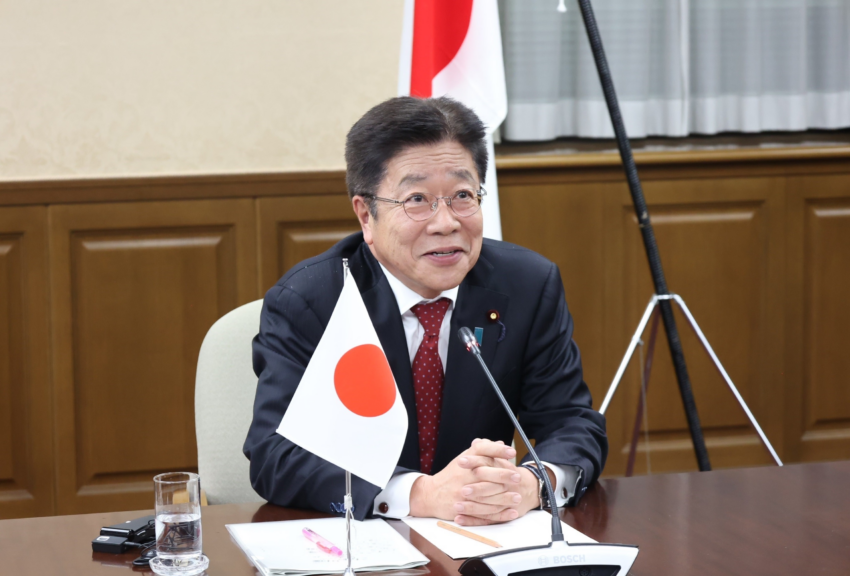A wave of Japanese companies has begun to adopt Bitcoin adoption as a core financial asset, solidifying Japan’s new role in shaping the global crypto economy.
The move reflects growing concern over inflation, currency devaluation and the need for a diverse financial strategy.
Japanese companies load into Bitcoin
Tokyo-based Metaplanet is leading this trend. The company converted most of its balance sheet to Bitcoin. As of August 4, 2025, it owns 17,595 BTC, ranking globally among public companies.
Metaplanet’s 555 Million Plan covers 100,000 BTC by 2026 and 210,000 BTC by 2027. This demonstrates a long-term commitment to the Bitcoin strategy.
Beauty salon operator Konbano also participated in the movement. The company aims to collect 21,000 BTC by March 2027. The company launched its Bitcoin Strategy Office in July 2025.
Convano invested $2.7 million in BTC. This marked a major change in Japan’s corporate finance. Other companies are following this lead.
Apparel retailer Mac-House will be in September with Gyet Co., Ltd. will be rebranded as. This change reflects the transition from clothing to crypto. The company plans to invest $160 million in purchasing and mining BTC.
Kitabo, a 70-year-old textile manufacturer that produces synthetic fiber yarns and healthcare products, purchased 3.32 BTC and launched a $135,000 Bitcoin purchase daily on a budget of $5.4 million.
Toho Remac, a company listed on the Tokyo Stock Exchange, has approved a one-year plan to acquire up to 1 billion yen ($6.8 million) in Bitcoin and Etherum. The company completed its first purchase on August 6th with 1.4475 BTC and 45.6581 ETH.
“Due to market expectations, the valuation has been three or four times the value of BTC,” said Ken Kawai. He advises the Japan Crypto Asset Business Association. “This could indicate a bubble and you need to watch carefully.”
New rules allow you to unlock Bitcoin ETFs
The Japanese Financial Services Agency (FSA) launched a new working group in July. We will investigate crypto assets that change from “payment methods” to “financial products.” This legal change will enable Japan’s first public cryptographic ETF.
SBI Holdings proposed two ETF products. It combines gold and digital assets. The other holds spot bitcoin and XRP.
Now, investors need to purchase crypto through exchanges. Profits are taxed as other income. Legal changes put ETFs under different tax rules. They could qualify for a 20% capital gains tax, like stocks.
This tax reform could unlock the institution’s money. Japan’s complex legal structure has hindered pension funds and asset managers. They may soon add crypto to their portfolio.
Japanese Finance Minister Colonel Katsunobu supports this change. He said crypto assets should be recognized as investment products, not just payments. The discussion began in 2025, shifting rules from the Payment Services Act to the Financial Products Act.
SBI is expanding its Web3 strategy through Stablecoins. The company deploys USDC, Ripple’s RLUSD, and circle-based Stablecoins. This creates an integrated financial infrastructure that links securities, banks and digital assets.
Mining operations will be green
Japanese companies are also expanding to Bitcoin mining. Convano is scheduled to begin mining in October 2025. Uses renewable energy in data centers in Texas and Georgia.
The company uses a demand response system. These support local grid stability that is consistent with environmental goals and crypto strategies.
Gyet Co., Ltd. is also participating in mining. The company plans to invest in mining equipment of more than 10 billion yen. Use data centers to reduce costs.
By mining Bitcoin itself, companies can self-finance the Ministry of Finance’s goals. This combines sustainability with financial innovation. Japanese companies not only buy Bitcoin, but are also participating in the ecosystem.
Japan regains its crypto leadership
The momentum of Japan’s cryptography is attracting global attention. In 2014, Tokyo-based Mt. Gox processed more than 70% of Bitcoin transactions around the world. Exchanges have collapsed, but Japan has learned from now on.
Japan became the first country to obtain a license to exchange cryptographic exchanges. This sets the tone for the global regulatory. The country is currently maintaining strong surveillance while supporting innovation.
“Japan is a pioneer in web3 regulations,” said Binance CEO Changpeng Zhao in 2023. He spoke when Binance re-entered Japan. “We are delighted to be able to provide our services in a clear and robust regulatory environment.”
Today, Japan has over 12 million crypto trading accounts. It manages crypto assets of 5 trillion yen, or $34 billion, according to industry data. Currently, about 1 in 10 people hold a code.
Globally, ETFs promote the mainstream appeal of Bitcoin. BlackRock, Fidelity and Grayscale launched the Spot BTC ETF in 2024.
If Japan approved a steady yen Bitcoin ETF, it could increase global liquidity. Japanese investors will get a way to hedge FX into Digital Assets. Analysts hope this will strengthen long-term demand while reducing entry barriers.
Still, wider adoption poses risk. The FSA balances innovation and investor protection, but also calls for transparency, clear disclosure and protection against excessive volatility.
If the trend continues, Japan may regain its status as a crypto powerhouse. This time it has both institutional strength and regulatory reliability.
Samurai Bitcoin Vault: The way Japanese companies are building crypto fortresses first appeared in Beincrypto.


